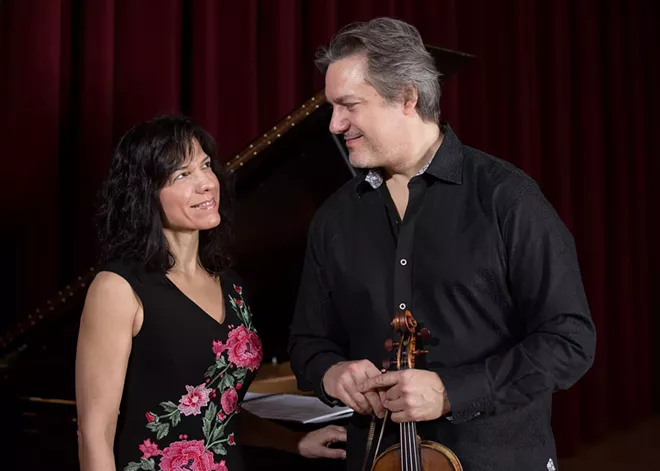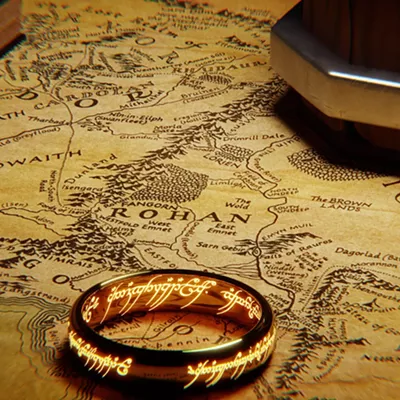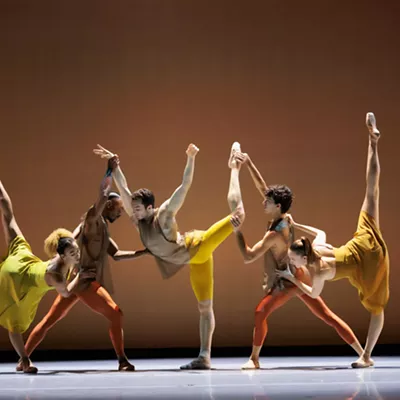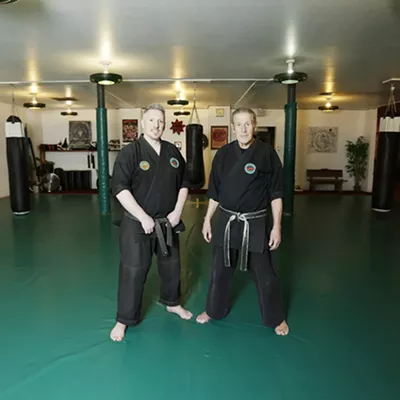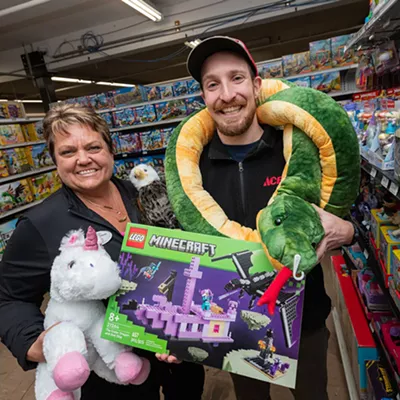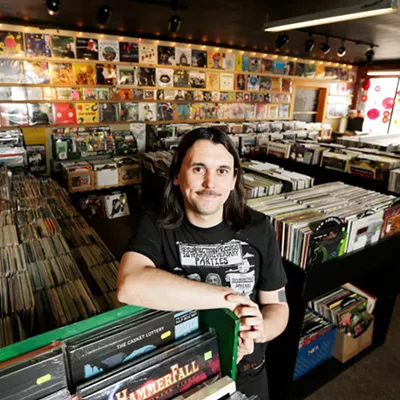Whenever he's prompted to describe what makes Northwest BachFest concerts special, Zuill Bailey is fond of recounting an anecdote about his mentor, the violinist Paul Rosenthal.
"I just asked him one time who his favorite performers in history were. And he said, 'It's very easy. My friends.'"
"I love that answer," the cellist continues, "but then I asked him why he said that. He said it's because you trust your friends. You believe your friends. You're 'you' with your friends."
As the artistic director of the long-running regional concert series, a mantle he inherited from the legendary Gunther Schuller in 2013, Bailey has routinely made a point of performing alongside musicians with whom his relationships are as personal as they are professional.
That continues with this weekend's BachFest chamber concerts at Barrister Winery, which will reunite him with fellow Juilliard alums — not to mention husband-and-wife duo — Kurt Nikkanen and Maria Asteriadou.
"Kurt is one of the greatest violinists I've ever heard. I have had the great luxury to work with him for almost three decades, and with all different sources, from concertos to chamber music. He is a marvel at what he does. And Maria, his wife, is a marvelous Greek virtuoso soloist. I've worked with her over the past 15 years," he says.
"What I like about that connection is that it produces music differently. In chamber music, I am the outsider in that group. So, as a trio, when we're playing and we're talking, I know full well that it's two against one. But at the same time, there's such a tremendous respect and, you know, life that has happened between us all."
The high praise Bailey has for his friends as well as his mentor fits with these two homage-rich concerts. Saturday's program includes Maurice Ravel's Sonata for Violin and Cello, dedicated to the composer's late friend and occasional critic Claude Debussy, who had died four years before its 1922 premiere.
"The Ravel duo is one of the great masterpieces for, oddly, violin and cello," Bailey says. "And I say 'oddly' not only because there are few pieces even written for this duo, but there are only maybe two that are at this height of artistic excellence."
Asteriadou and Bailey follow the Ravel with a performance of Debussy's Cello Sonata, published in 1915. Gabriel Fauré, a mutual elder acquaintance of both men, will also be showcased through his Violin Sonata No. 1 in A major, Op. 13. The work lent new momentum to Fauré's early career when it debuted in 1877.
"When people come into our concerts, the greetings aren't waves. They're hugs."
On Sunday, the program departs France for 19th-century Germany and Russia. Beethoven's famously technically demanding Violin Sonata No. 9 in A major, Op. 47, nicknamed "Kreutzer" for its dedicatee, violinist Rodolphe Kreutzer, is complemented by Tchaikovsky's Trio in A minor, Op. 50.
Tchaikovsky had begun work on the piano trio in 1881, the year that his close friend and mentor Nikolai Rubinstein died. It bears the subtitle "À la mémoire d'un grand artiste" ("In memory of a great artist").
"The Kreutzer sonata by Beethoven is a show-stopper in its own right, but we're pairing that with the biggest, boldest, most impacting piano trio ever written. When you walk out of there after experiencing the Tchaikovsky, you're not just whistling or humming a melody. The flavor and life of Tchaikovsky is in your bones," Bailey says.
"So that is an epic afternoon. To hear it up close like that, it's IMAX. You hear the first one, and you go, 'Oh, my God.' Then you hear the next one, and you go, 'Oh, my God.' And there's nothing more to experience after that."
One other quality of BachFest concerts that Bailey likes to refer to is the "story" of the music that he and his peers perform. That doesn't just mean describing how a particular work fits into a certain historical period or artistic movement. It also has to do with the dynamics of that work and the emotions it evokes in the listener.
Friendship, in his eyes, is key to telling that story.
"If there's a very significant story to be told, it's a priority to have that story told by a trusted source."
To foster that vital sense of trust between BachFest's musicians and concertgoers, he says, "We've really taken down that wall, that boundary between the performers and the audience.
"When people come into our concerts, the greetings aren't waves. They're hugs. People literally come up and hug their performers, welcoming them back. And then, of course, the music becomes even more real, and the story becomes personal." ♦
Northwest BachFest March Concerts • Sat, March 1 at 7 pm and Sun, March 2 at 3 pm • $10-$45 • Barrister Winery • 1213 W. Railroad Ave. • nwbachfest.com • 509-326-4942

